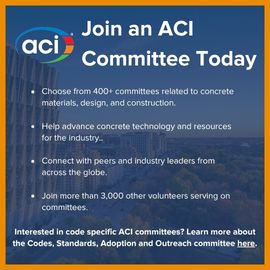
ANCR, ICC salute work of 100 Resilient Cities program as it officially ends
The Rockefeller Foundation announced on April 1, 2019, that it will end funding and dismiss the staff at its 100 Resilient Cities program, the largest privately funded resilience initiative in the U.S. Started in 2013 to help American and international cities prepare for and endure threats related to both chronic and acute threats, the program encouraged cities to develop a plan for resiliency through the hire of full-time “chief resilience officers’’ who develop and then implement strategies for enhancing a community’s resilience. The $164 million initiative also gave cities access to the organization’s staff and external consultants, as well as to a global network of cities trying to grapple with similar problems.
100 Resilient Cities worked with a wide range of partners from the private, public, academic and non-profit sectors to grow the urban resilience movement globally and give cities access to the resources they need to become more resilient. The International Code Council — which provides leadership and expertise in numerous international initiatives to improve the safety and resilience of the built environment worldwide — has been a proud supporter and partner of the 100 Resilient Cities initiative since signing a memorandum of understanding in August 2017. Rebecca Laberenne of the 100 Resilient Cities program provided a special presentation about the initiative during the Code Council’s 2016 Global Connections Day, which provided attendees with information on the effects of regulatory change on institutions and governments throughout the world and the need for codes and standards to keep pace with the impact of real or perceived climate change. Additionally, specialists from 100 Resilient Cities contributed to the Buildings Benchmark Committee of the Alliance for National & Community Resilience (ANCR), to help determine the criteria to evaluate a community’s capacity, risk awareness, competence and resources to respond to disasters or other events that affect the accessibility, quality or availability of homes, schools, stores and other buildings.
Related:
ICC supports disaster safety and resilience
New publication on resilience through the codes
Resilience benchmarks for U.S. communities released
ICC & ANCR join Resilient Nation Partnership Network
The Code Council and ANCR will continue their contributions to the achievement of resilient communities, leveraging the important groundwork laid by 100 Resilient Cities. A part of the ICC Family of Companies, ANCR is a national coalition aimed at improving resilience and implementing good community practices in towns and cities across the United States and helping cities prevent infrastructure failure caused by natural and other disasters, thereby avoiding negative social, economic and welfare repercussions caused by such damages. The Alliance’s primary objective is the development of a system of community benchmarks — the first system of its kind in the United States — that will allow local leaders to easily assess and improve their resilience across all functions of a community. When adverse events occur, all gears in the local system must continue to function, and ANCR intends to give communities a voluntary, transparent, usable and easily understandable self-assessment that helps to showcase their whole-community resilience and provides a simple gauge of how their resilience continues to strengthen.
The Code Council believes in a “whole community” approach toward building resiliency in the built environment, which begins with strong, regularly adopted and properly administered building codes and ends with communities look across all of its interconnected functions to truly be a resilient community.
For seven years, the 100 Resilient Cities initiative significantly raised the profile of resilience through a network of 100 cities around the world committed to building urban resilience. More than just the ability for a community or system to rapidly recover from the shock of a natural disaster such as an earthquake, flood or hurricane, the 100 Resilient Cities program sought to not only reduce the negative impacts of these events for citizens but also collaborate with cities to develop initiatives that improve the safety of their buildings and infrastructure and generate social, environmental and economic co-benefits.
Click here to view the many resources the Code Council offers to assist jurisdictions, manufacturers and the public with resilient building practices.








